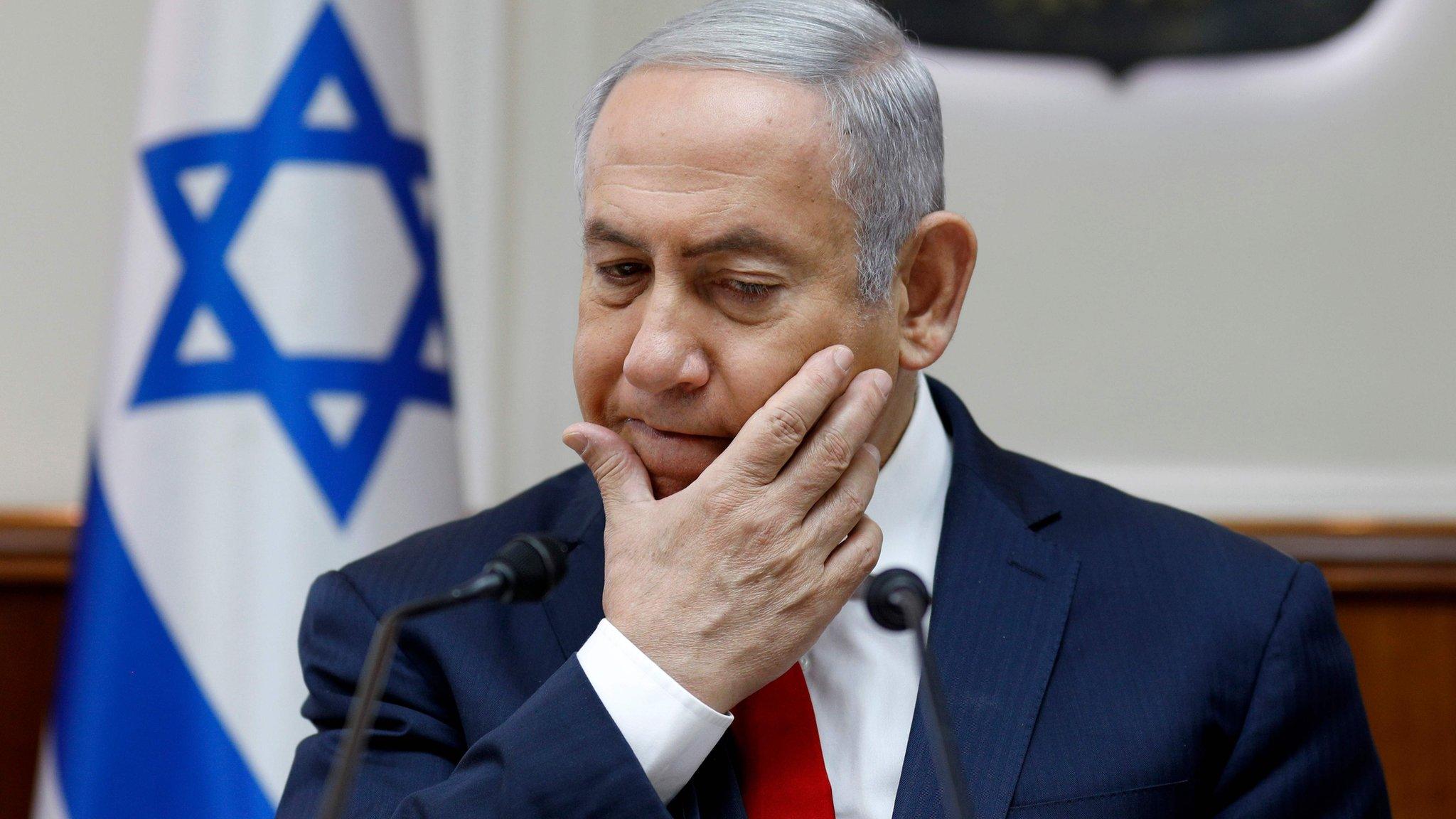Israel's Netanyahu facing fight of his political life
- Published
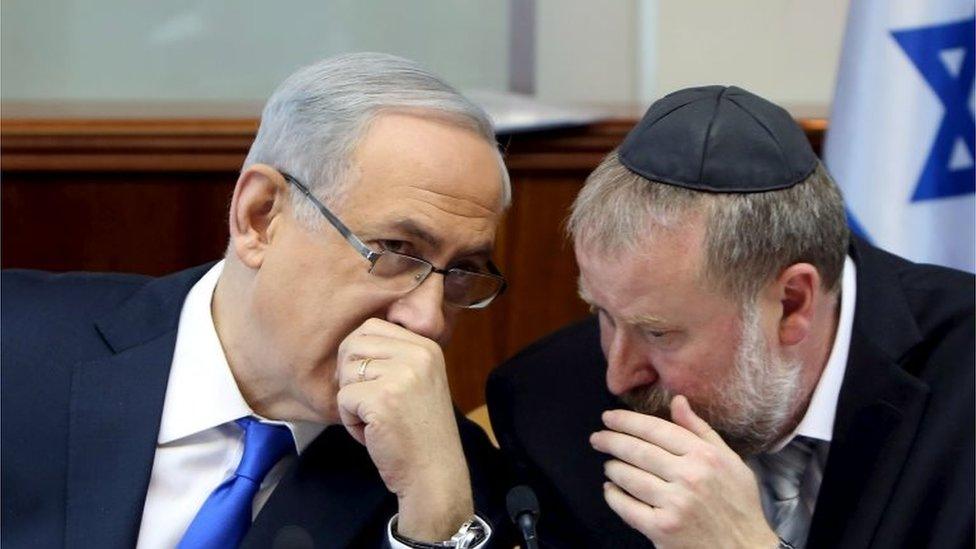
Attorney General Mandelblit (r) decided to charge Netanyahu with corruption
Anyone who thought a decision on the long-running corruption investigation embroiling Israel's prime minister would resolve the country's political turmoil was wrong.
On Thursday Benjamin Netanyahu reacted to indictments on charges of bribery and fraud with a vitriolic attack on law enforcement, the judicial system and what he sees as hostile left-wing media. He claimed that police and prosecutors were conducting a grand conspiracy to remove him from power.
This was a line of attack he'd taken as the investigation closed in, and one he's expected to continue as the country staggers towards more months of political crisis.
And although Mr Netanyahu has been weakened, he has time on his side as he continues to struggle for political survival.
Uncharted territory
Attorney General Avichai Mandelblit announced the indictment after three years of probes into the prime minister's relationships with wealthy friends.
Mr Netanyahu is accused of accepting expensive gifts in exchange for political favours, and doing deals to get good press coverage.
November 2019 - Benjamin Netanyahu rails against corruption charges
Mr Mandelblit insisted he was not politically motivated but had acted professionally to uphold the law.
The force of Mr Netanyahu's response alarmed observers of Israel's political scene.
"He will set everything ablaze," wrote Ben Caspit of Maariv, a daily newspaper. "He won't stop until all is rubble."
Whatever the case, this certainly is uncharted territory. It's the first time a sitting prime minister in Israel has been indicted with criminal charges. And it comes in the midst of an unprecedented political stalemate.
Leadership challenge?
Mr Netanyahu and his main political opponent Benny Gantz have both failed to form a government after two rounds of inconclusive elections.
The indictment seems to have made the chances of cobbling together a working coalition even more remote, increasing the prospect of another return to the ballot box.
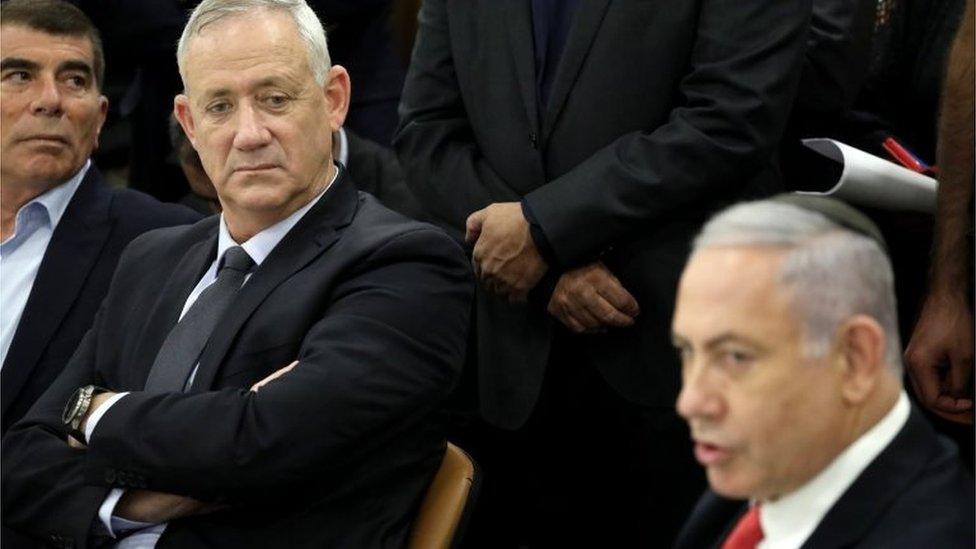
The charges against Netanyahu have compounded Israel's political crisis
A lot will depend on senior members of Mr Netanyahu's Likud party. Until now they have maintained their tribal loyalty to the prime minister, but he is facing a possible challenge from within.
The former education and interior minister, Gideon Saar, has called for party primaries to replace him. There may well yet be others.
There may also be shifts in political alignments as the right-wing parties allied with Likud assess the price to be paid in the event of another election under Mr Netanyahu's leadership. There's little doubt amongst political observers that he wants an election, which at the very least would buy him time.
He's been preoccupied with efforts to form a right-wing government that would vote to grant him immunity from prosecution.
Despite failing to do so, his status as a member of the Knesset gives him 30 days to ask the legislative body to grant him such immunity. The indictment cannot be formally filed unless this process happens.
But that request for immunity cannot be made until there is a functioning government. There isn't one now and won't be for even longer if Israelis are forced to vote yet again.
That would give the prime minister more room to manoeuvre, but could also increase the pressure on him to step down. His political opponents are making those demands, and even some pro-Netanyahu media outlets are saying it would be a good idea.
Poll 'opportunity'
Israeli law does not require the prime minister to leave office if indicted, but it's never been tested with a concrete case.
There are some who fear that an election would be a "civil war without arms" between Mr Netanyahu's energised base and Israelis who are fed up with his legal woes and attacks on the country's institutions.
Others see an opportunity. The prime minister's criticism of the media and his call to "investigate the investigators" has drawn comparisons with his close ally, US President Donald Trump.
Except for a key difference, writes Gil Hoffman in the right-wing Jerusalem Post: "In Israel a prime minister can be ousted much easier than the president of the United States… because our elections are not limited to every four years."
And on Thursday night, a third one in less than 12 months became almost inevitable.
- Published22 November 2019
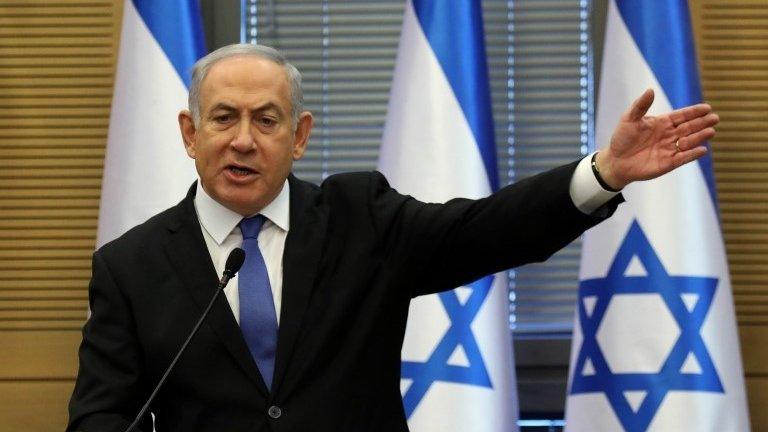
- Published20 November 2019
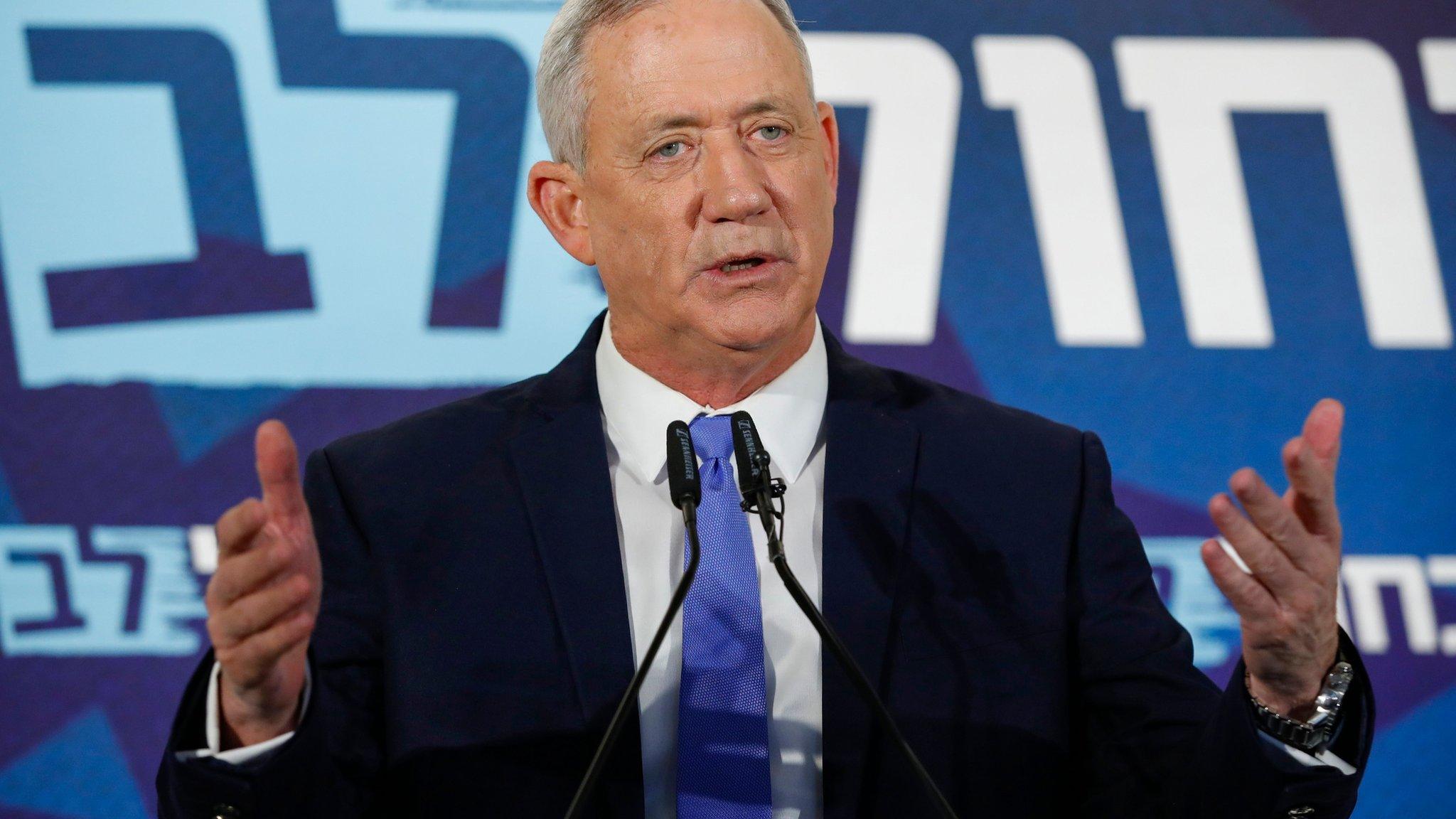
- Published21 November 2019
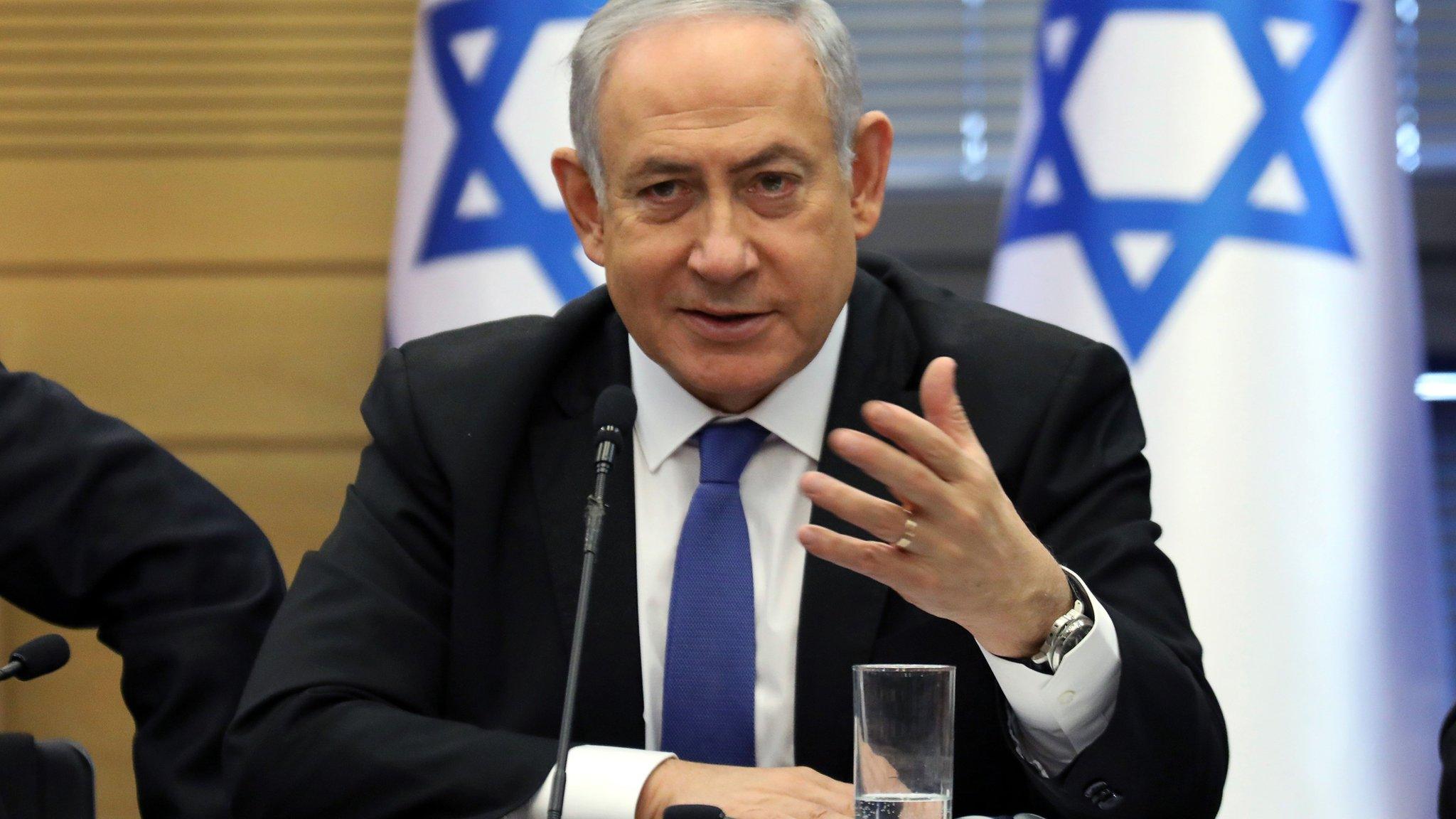
- Published21 November 2019
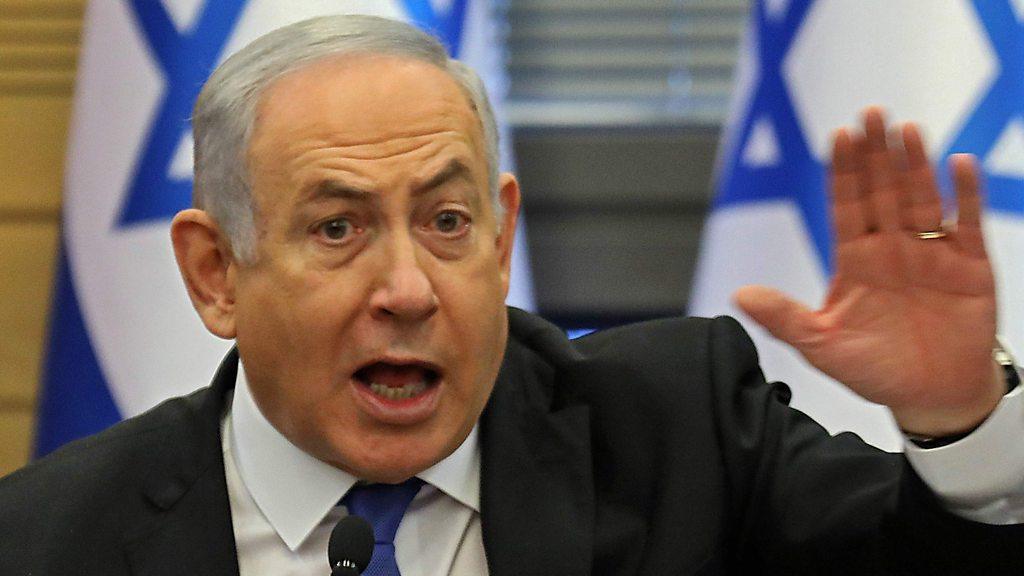
- Published21 November 2024
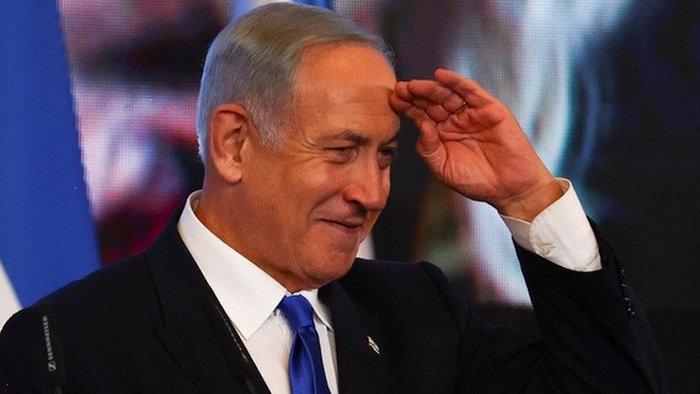
- Published22 May 2020
